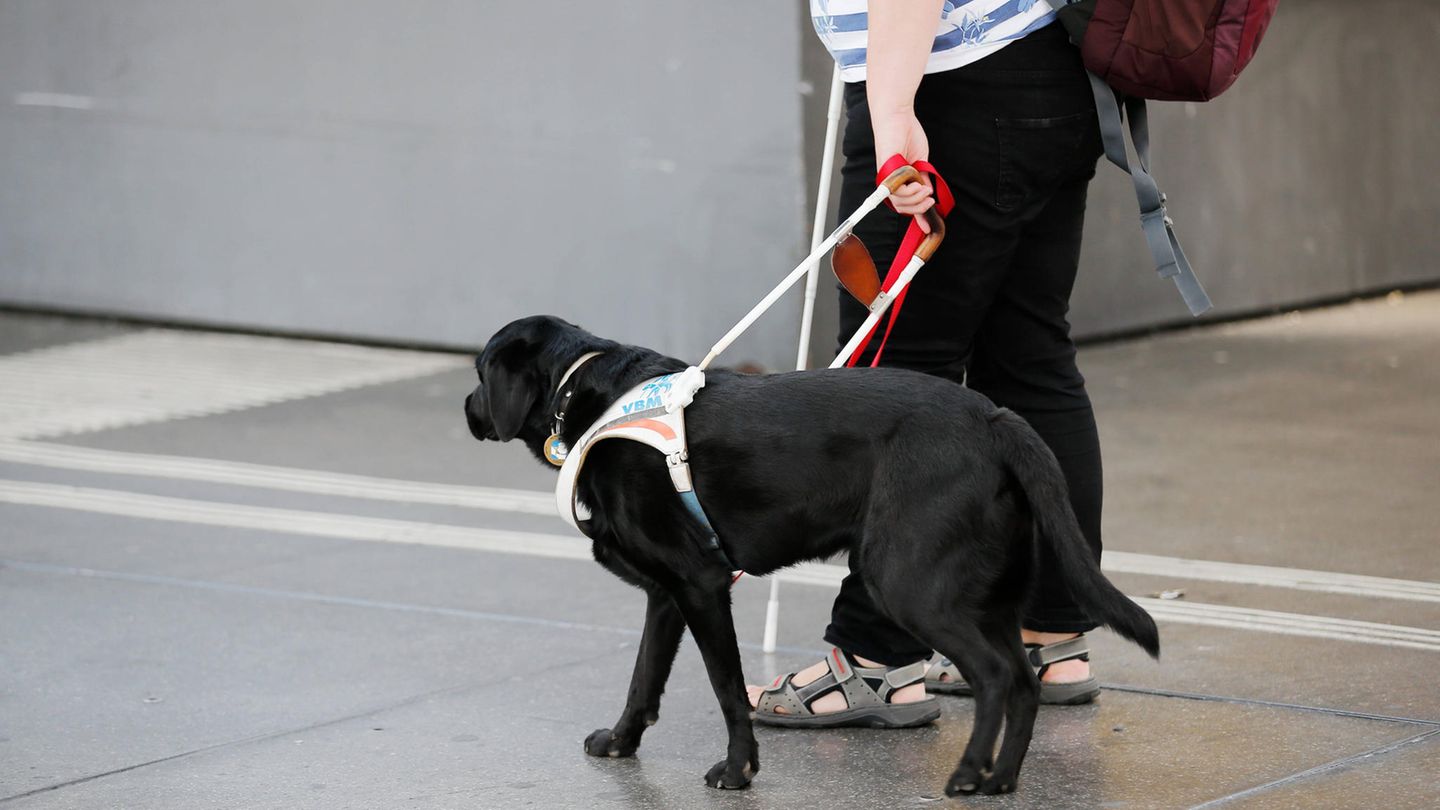The new citizenship law has been criticized: it discriminates against people with disabilities. How did this come to pass?
At the beginning of December, when the meadows were covered in snow, a “non-naturalization ceremony” took place in front of the Bundestag. Several organizations that advocate for people with disabilities feared that a new citizenship law that was being negotiated in parliament at the time could discriminate against people with disabilities when it came to naturalization. Their appeal: not to “forget” this group when the new regulations were introduced.
On Thursday, the new citizenship law came into force – and the regulation came into effect exactly as the organizations had feared. As before, only those who – among other requirements – can support themselves can be naturalized. Under the old legal situation, there was an exception for those who were not responsible for such a situation themselves. An important addition not only for caring relatives, but also for people with disabilities. This exception no longer exists under the new regulation.
For Sophia Eckert from the association “Handicap International” the case is clear: “The new law puts people with disabilities at a disadvantage, contrary to constitutional and international law requirements,” she told the starThose affected must now apply for a hardship case. However, this does not entitle them to naturalization; the decision is left to the discretion of the local authority. “This is not equal treatment of people with and without disabilities,” Eckert criticizes.
This is a harsh accusation – but the Federal Government Commissioner for the Affairs of People with Disabilities also commented on the star similar. So how did this disadvantage come about?
People with disabilities were not simply “forgotten,” as the organizations put it in December. “During the negotiations on the law, this aspect was discussed in great detail,” said the deputy leader of the SPD parliamentary group, Dirk Wiese, to the star. This is probably also because experts had already criticized this detail of the new regulation at the time. In a hearing of the Committee on Internal Affairs in December, legal scholar Sina Fontana from the University of Augsburg said that the “tightening of living standards” was highly problematic from a constitutional point of view.
Naturalization: “Unfortunately, this was not possible in the coalition”
And yet it happened. The Greens blame their traffic light colleagues, both the SPD and the FDP. “This regulation was cancelled due to pressure from our coalition partners,” said Filiz Polat, a specialist politician for migration, to the star“The right to German citizenship will now depend more on economic integration,” said the Green Party member, who helped negotiate the law. This could affect pensioners, people with an illness or disability, and also single parents who cannot work or can only work part-time because of childcare.
The SPD rejects this accusation: “The SPD faction would have liked to see further exceptions to the right to naturalization regarding the provision of livelihood for people with disabilities, single parents or students,” said Wiese. “Unfortunately, this was not possible in the coalition” – and points to the FDP.
Apparently, the FDP had difficulty allowing dual citizenship – meaning that people can now keep their foreign nationality in addition to their German nationality. In return, they pushed for economic performance to be made a clear criterion for naturalization.
Buschmann: Naturalization made easier for those “who live from the work of their own hands”
In fact, Justice Minister Marco Buschmann spoke in the “Welt” newspaper on Thursday with a “clear message”: Germany is making naturalization easier for those “who live from their own work,” said the FDP politician. “However, those who receive social benefits such as citizen’s allowance or basic social security are generally not allowed to be naturalized.”
It fits into a picture that has been emerging recently: the traffic light coalition sees itself under pressure in migration and social policy. The budget situation is difficult, the situation on the labor market is tense, and migration is an important issue for many voters. For example, the Chancellor has announced that he will make the citizen’s allowance “more accurate” and toughen the sanctions for those on the citizen’s allowance who are found to be working illegally. The federal government also wants to deport foreigners who condone terrorist acts more quickly. And the FDP wants to cut the citizen’s allowance for Ukrainian refugees.
Sophia Eckert from “Handicap International” is concerned about these developments and the concrete tightening of citizenship law: “Politics is sending a dangerous signal,” she said. “We are only issuing passports to people who are fully capable of working, regardless of whether the lack of ability to work was the fault of the person themselves.” The traffic light coalition is carelessly accepting the disadvantage of people with disabilities – even though they have a right to equal treatment and to participate in society. “That should worry us all.”
Source: Stern
I have been working in the news industry for over 6 years, first as a reporter and now as an editor. I have covered politics extensively, and my work has appeared in major newspapers and online news outlets around the world. In addition to my writing, I also contribute regularly to 24 Hours World.




